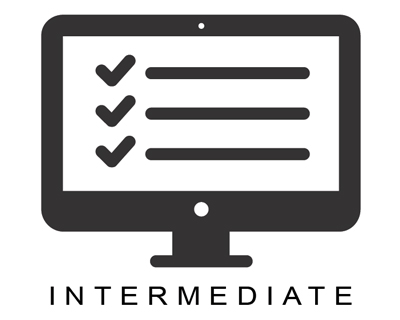The Florida Department of Environmental Protection (FDEP) oversees organics recycling facilities in the state and is in the process of updating the Organics Recycling Rule (Chapter 62-709, F.A.C.) to promote more organics recycling statewide. With approximately 300 registered/permitted organics processing facilities, FDEP’s rule changes include clarifying definitions, adding new feedstocks, and requiring an operations plan… Continue reading POL.239-The State of Organics Recycling in Florida & the Florida Organics Recycling Center for Excellence FORCE-AC24.USCC
Category: Intermediate
FEE.225-CMA Field Testing Data – Resetting Assumptions-AC24.USCC
CMA will share comprehensive data from in-field testing of compostable products, categorizing results by substrate type and composting technology. The presentation aims to debunk common misconceptions surrounding substrate performance and facility variations. Specifically, it will challenge assumptions regarding disintegration uniformity across composting technologies, the superiority of fiber products over biopolymers in disintegration, and the belief… Continue reading FEE.225-CMA Field Testing Data – Resetting Assumptions-AC24.USCC
FEE.224-Compostable Field Testing Program Open Source Data Project: Results and Next Steps-AC24.USCC
The presentation discusses the outcomes of the Compostable Field Testing Program (CFTP), an international research initiative allowing composters to field test compostable foodware and packaging in real-world settings. It highlights the findings on the disintegration of compostable items across various facilities in terms of scale, geography, and technology. Additionally, it provides a sneak peek into… Continue reading FEE.224-Compostable Field Testing Program Open Source Data Project: Results and Next Steps-AC24.USCC
USE.235-Large Scale Composting and Vermicomposting of Dairy Manure-AC24.USCC
The presentation will discuss two large-scale process-controlled vermicomposting facilities located in Torreon, MX, and Avon, New York, USA, focusing on their siting, design, construction, and initial operations. These facilities produce high-quality vermicompost suitable for high-value horticultural production. Various design and operational factors impacting vermicompost volume, quality, economic sustainability, and environmental sustainability will be explored. The… Continue reading USE.235-Large Scale Composting and Vermicomposting of Dairy Manure-AC24.USCC
FEE.223-Upcycling Sugarcane By-products with Compost Production to Enhance Regenerative Agricultural Practices-AC24.USCC
Florida Crystals has established an agricultural composting facility that utilizes sugarcane by-products as feedstock, contributing to sustainable farming practices. By recycling sugarcane biomass into compost, the company reduces reliance on purchased fertilizers and closes the nutrient loop within its farming system. The facility’s design minimizes carbon emissions by utilizing conveying systems for feedstock transport instead… Continue reading FEE.223-Upcycling Sugarcane By-products with Compost Production to Enhance Regenerative Agricultural Practices-AC24.USCC
VIS.221-Compost feedstock in the Circular Economy – Cotton – Food Scrap – Animal mortality-AC24.USCC
The objective of achieving circularity in the organic feedstock economy is to minimize landfill diversion of organic materials and promote their reuse in composting facilities and digesters. With landfills nearing capacity worldwide, it is crucial to divert organic and recyclable materials to sustainable disposal methods. Composting these materials enriches soil health, supports food, feed, and… Continue reading VIS.221-Compost feedstock in the Circular Economy – Cotton – Food Scrap – Animal mortality-AC24.USCC
USE.234-SunBridge Sustainable Landscapes-AC24.USCC
Project, The Vision, Commitment to Sustainability, Ecological Preservation, Community Engagement, Why Shift to Sustainable Landscapes, Business Case.Speakers: Richard LeveyDuration: 21 minutesCredits: 0.5Member Price: $30.00Non-Member Price: $52.50Purchase Course Now
USE.233-Florida Conventional Land Development-AC24.USCC
Conventional Practice, Landscape Impacts, Water Supply Impacts, Water Quality Impacts, Sustainable Landscaping Alternatives, Soil Restoration.Speakers: Pierce JonesDuration: 25 minutesCredits: 0.5Member Price: $30.00Non-Member Price: $52.50Purchase Course Now
USE.232-Compost – A Solution to Ever Increasing Water Restrictions in Masterplan Communities-AC24.USCC
Compost Specifications, Benefits to disturbed urban soils, Practical application and equipment, application rates, and Development of Post-Construction Soil Standards / Ordinances.Speakers: Darren MidlaneDuration: 16 minutesCredits: 0.5Member Price: $30.00Non-Member Price: $52.50Purchase Course Now
USE.231-Sustainable Landscaping Research-AC24.USCC
Present findings from a recent research project as a collaboration between UF/IFAS and UCF. Compost Amendments versus urban-only soils – Alter urban soils to improve plant health, reduce water needs, and support biodiversity – Plant Quality, Water Use, Flowers and Pollinators. Speakers: Brooke MoffisDuration: 21 minutesCredits: 0.5Member Price: $30.00Non-Member Price: $52.50Purchase Course Now
